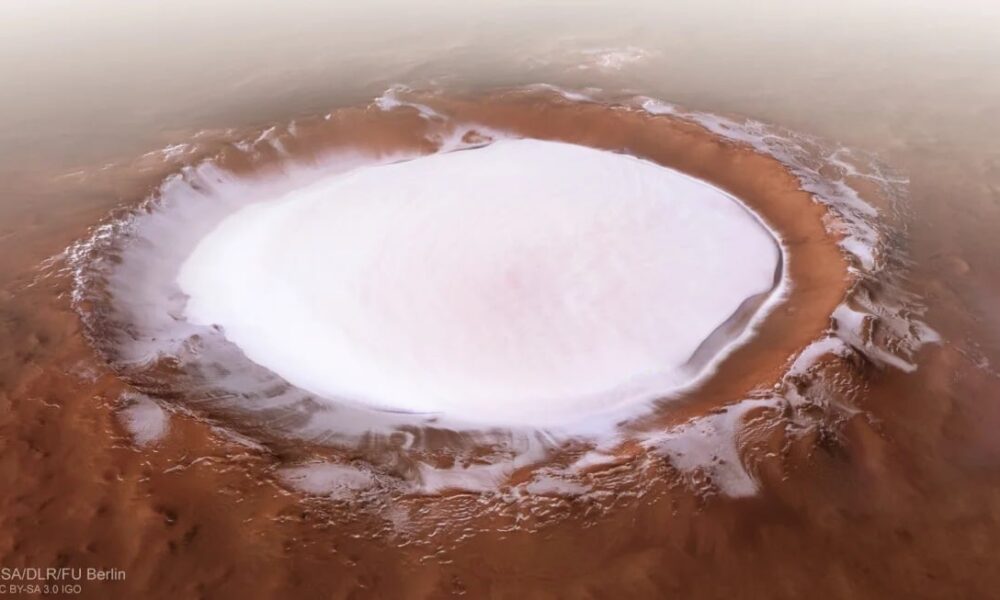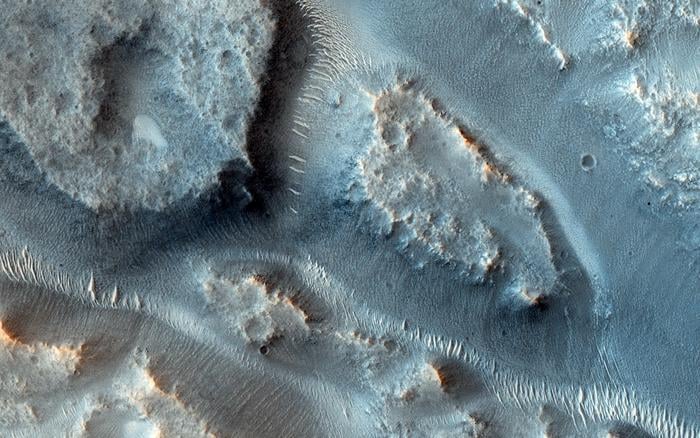New research indicates that ice deposits within Martian craters are crucial to understanding the planet’s climatic history. A team of Japanese researchers, led by Trishit Ruj from the Institute for Planetary Materials at Okayama University, has uncovered evidence suggesting that Mars underwent multiple ice ages over hundreds of millions of years. Their findings, published in the journal Geology, highlight how the planet’s climate evolved from a warmer, wetter environment to the frigid landscape observed today.
Mars is dotted with features that hint at its wetter past, including river channels, sedimentary deposits, and regions rich in clay minerals. These geological formations raise critical questions about the planet’s water history, including how much liquid water once existed and what caused its transition to a predominantly dry state.
The researchers focused on glacial landforms preserved in craters located between 20°N and 45°N latitude. They utilized high-resolution images from the Context Camera (CTX) and the High-Resolution Imaging Science Experiment (HiRISE) aboard NASA’s Mars Reconnaissance Orbiter (MRO). By examining craters exhibiting signs of glaciation, such as ridges and debris from ice sheets, the team compared their shapes and orientations with climate models.
Their analysis revealed that ice consistently accumulated in the shadowed southwestern walls of these craters, a pattern that persisted over multiple glacial periods throughout the Amazonian period, spanning approximately 640 to 98 million years ago. Dr. Ruj noted in a press release from Okayama University, “Like Earth, these shifts in Mars’ climate were caused by changes in the planet’s axial tilt (obliquity).”
The study emphasizes that while Earth’s axial tilt changes gradually, Mars can experience dramatic shifts over eons. These variations trigger periods of glaciation and thaws, resulting in a steady decline in ice over time. According to the research, this gradual drying process occurred throughout the Amazonian Era, marking it as the longest geological period in Martian history.
The implications of this research extend beyond Martian exploration. Understanding how ice behaves over extended timescales could provide insights into Earth’s climate challenges. As rising global temperatures lead to shrinking ice caps and glaciers, the same imaging and modeling techniques used for Mars can help monitor water reserves on Earth.
In the context of future missions to Mars, the research also highlights the importance of in-situ resource utilization (ISRU). With spacecraft requiring six to nine months to travel from Earth to Mars, sourcing local water ice will be vital for supporting human life, enabling food production, oxygen generation, and propellant creation.
Dr. Hasegawa from Kochi University, a co-author of the study, remarked, “Mars serves as a natural laboratory for understanding how ice behaves over vast timescales. The insights we gain here can sharpen our understanding of climate processes on Earth as well.”
As the quest to explore Mars continues, this research underscores the importance of studying the planet’s ice deposits, not only for their historical significance but also for their potential to inform our understanding of climate change on Earth.







